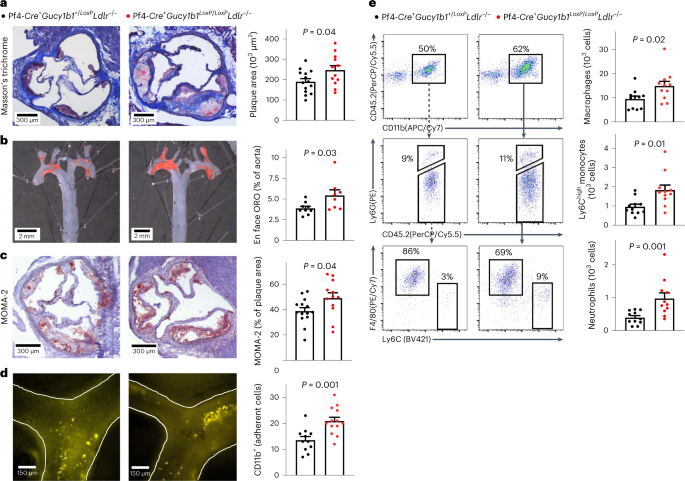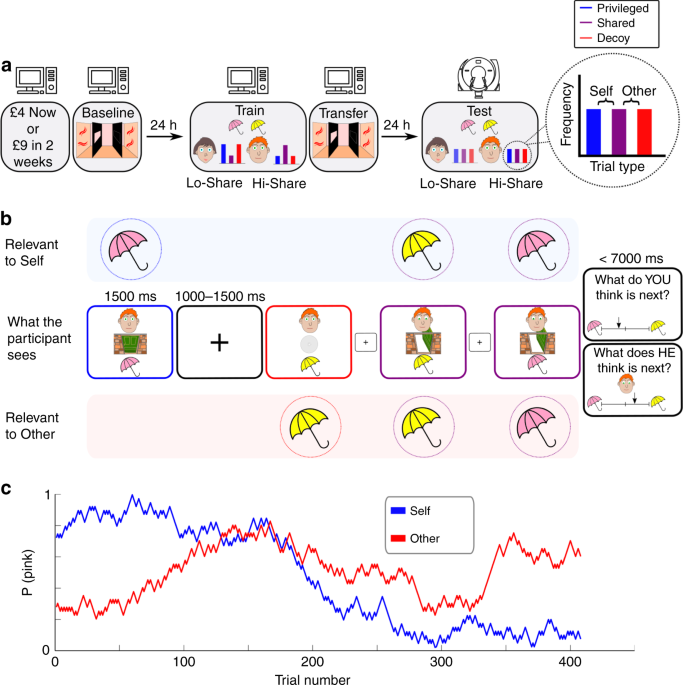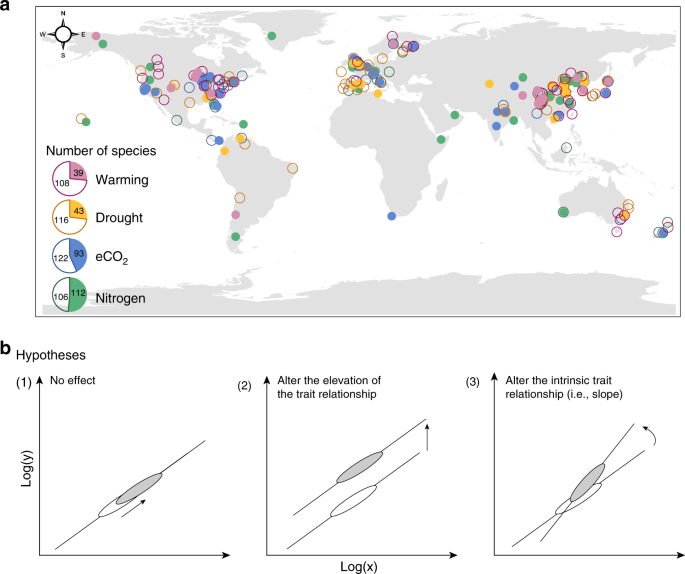- Select a language for the TTS:
- UK English Female
- UK English Male
- US English Female
- US English Male
- Australian Female
- Australian Male
- Language selected: (auto detect) - EN
Play all audios:
ABSTRACT This secondary analysis assessed the association of a plant-based index (PDI), healthful (hPDI), and unhealthful (uPDI), with weight loss in overweight adults. Participants (_n_ =
244) were randomly assigned to a vegan (_n_ = 122) or control group (_n_ = 122) for 16 weeks. Three-day dietary records were analyzed and PDI indices were calculated. A repeated measure
ANOVA was used for statistical analysis. All three scores increased in the vegan group; the effect sizes were: PDI +10.6 (95% CI +8.6 to +12.6; _p_ < 0.001); hPDI +10.9 (95% CI +8.4 to
+13.4; _p_ < 0.001); and uPDI +5.4 (95% CI +3.4 to +7.4; _p_ < 0.001). The change in all three scores significantly correlated with change in body weight: PDI (r = −0.40; _p_ <
0.001); hPDI (r = −0.37; _p_ < 0.001); and uPDI (r = −0.21; _p_ = 0.002). These findings suggest that minimizing the consumption of animal products and oil may be an effective weight loss
strategy in overweight adults. ClinicalTrials.gov number, NCT02939638. INTRODUCTION Plant-based diets have been associated with lower body weight and reduced type 2 diabetes prevalence.
Based on observational studies, some have proposed quantifying the healthfulness of plant-food dietary patterns, creating plant-based (PDI), healthful plant-based (hPDI), and unhealthful
(uPDI) plant-based dietary indices [1]. However, the association of such categorization with body weight has not been confirmed in randomized trials. A secondary analysis of previously
published data [2] assessed the association of PDI, hPDI, and uPDI in the context of a vegan diet, with weight loss in overweight adults. METHODS As described previously [2], this randomized
trial was conducted between January 2017 and February 2019 in Washington, DC. This study follows the Consolidated Standards of Reporting Trials (CONSORT) reporting guideline. The protocol
(Supplement 1) was approved by the Chesapeake Institutional Review Board. All participants provided written informed consent. Participants were randomly assigned to a vegan or control group
(Suppl. Fig. 1). The vegan group was asked to follow a low-fat vegan diet consisting of fruits, vegetables, grains, and legumes. The control group was asked to make no diet changes. No
instructions on diet quality were given to either group. At baseline and week 16, a 3-day dietary record (two weekdays and one weekend day) was completed by each participant and analyzed by
a registered dietitian certified in the Nutrition Data System for Research [3]. The PDI, hPDI, and uPDI were calculated [1]. A repeated measures ANOVA was used by a statistician blinded to
dietary interventions. Results are presented as means with 95% confidence intervals. Pearson correlation was used to evaluate the magnitude and significance of the association between the
changes in body weight and changes in all three indices and their individual food components. After Bonferroni correction, _p_ values less than 0.003 (0.05/17) were considered significant.
In addition, a stepwise forward multiple regression analysis was fit (using all food components as candidate predictors) to determine food components independently predictive of change in
body weight. RESULTS Of 3115 people screened by telephone, 244 overweight adults met participation criteria and were assigned to the vegan (_n_ = 122) or control (_n_ = 122) groups. The
analysis included 223 (91.0%) completers. DIETARY INTAKE Self-reported energy intake was reduced in both groups, more in the vegan group (effect size: −367.6 kcal/day [95% CI −536.8 to
−198.5]; _p_ < 0.001). The macronutrient content did not change significantly in the control group, while the vegan group participants increased their intake of carbohydrate (effect size:
+22.5% of daily energy [95% +20.1 to +24.9]; _p_ < 0.001) and fiber (effect size: +11.5 g/day [95% +8.1 to +14.8]; _p_ < 0.001), and reduced consumption of fat (effect size: −18.0 %
of daily energy [95% −20.1 to −15.8]; _p_ < 0.001), protein (effect size: −4.7 % of daily energy [95% −6.1 to −3.4]; _p_ < 0.001), and cholesterol (effect size: −215 mg/day [95% −261
to −169]; _p_ < 0.001). BODY WEIGHT AND BODY COMPOSITION Body weight decreased in the vegan group (effect size: −5.9 kg [95% CI −6.7 to −5.0]; _p_ < 0.001). The majority of the weight
reduction was due to the reduction in fat mass (effect size: −4.1 kg [95% CI −4.7 to −3.5] kg; _p_ < 0.001), and visceral fat (−209 cm3 [95% CI −304 to −114]; _p_ < 0.001). PDI, HPDI,
UPDI All three scores increased in the vegan group, compared with no change in the control group; the effect sizes were: PDI + 10.6 (95% CI +8.6 to +12.6; _p_ < 0.001); hPDI +10.9 (95% CI
+8.4 to +13.4; _p_ < 0.001); and uPDI +5.4 (95% CI +3.4 to +7.4; _p_ < 0.001). The change in all three scores significantly correlated with change in body weight, with PDI (r = −0.40;
_p_ < 0.001) and hPDI (r = −0.37; _p_ < 0.001) having stronger correlations than uPDI (r = −0.21; _p_ = 0.002). PDI FOOD SCORES The scores for fruits, vegetables, whole grains, and
legumes increased significantly in the vegan group (Table 1), and changes were negatively associated with changes in body weight (Table 2). The consumption of all animal products decreased
in the vegan group. Changes were positively associated with changes in body weight. The change in vegetable oil intake correlated positively with weight changes (r = +0.27; _p_ < 0.001).
A multiple linear regression model (r2 = 0.26; _p_ < 0.001) showed that the following food components were independently associated with weight loss: whole grains (_p_ = 0.006) and
legumes (_p_ = 0.007) showed a negative association, while meat (_p_ < 0.001), vegetable oils (_p_ = 0.006), and sweets (_p_ = 0.01) showed a positive association. The R-squared is about
0.26 for this model. DISCUSSION In a 2021 study in three U.S. prospective cohorts, increased PDI and hPDI were associated with a lower risk of type 2 diabetes; changes in uPDI were not [4].
These findings were confirmed by an analysis of their plasma metabolite profiles [5]. Our findings show, however, that changes in all plant-based indices—PDI, hPDI, and uPDI were inversely
associated with weight changes. Replacing animal products with either so-called healthful or unhealthful plant-based foods was associated with weight loss, and change in oil intake was
positively associated with change in body weight. The food components that were independently associated with weight loss included whole grains and legumes, which showed a negative
association, while meat, vegetable oil, and sweets showed a positive association. The strengths of the current trial include a randomized, parallel design, which accounted for seasonal
effects. The study also has limitations. The PDI scores were based on self-reported diet records. The participants were volunteers and may not represent the general population. In
conclusion, all three scores increased in the vegan group and correlated negatively with changes in body weight. These findings suggest that minimizing the consumption of animal products and
vegetable oil may be an effective weight-loss strategy. REFERENCES * Satija A, Bhupathiraju SN, Rimm EB, Spiegelman D, Chiuve SE, Borgi L, et al. Plant-based dietary patterns and incidence
of type 2 diabetes in US men and women: results from three prospective cohort studies. PLoS Med. 2016;13:e1002039. Article PubMed PubMed Central Google Scholar * Kahleova H, Petersen KF,
Shulman GI, Alwarith J, Rembert E, Tura A, et al. Effect of a low-fat vegan diet on body weight, insulin sensitivity, postprandial metabolism, and intramyocellular and hepatocellular lipid
levels in overweight adults: a randomized clinical trial. JAMA Netw Open. 2020;3:e2025454. Article PubMed PubMed Central Google Scholar * Schakel SF, Sievert YA, Buzzard IM. Sources of
data for developing and maintaining a nutrient database. J Am Diet Assoc. 1988;88:1268–71. Article CAS PubMed Google Scholar * Chen Z, Drouin-Chartier JP, Li Y, Baden MY, Manson JE,
Willett WC, et al. Changes in plant-based diet indices and subsequent risk of type 2 diabetes in women and men: three U.S. prospective cohorts. Diabetes Care. 2021;44:663–71. Article CAS
PubMed PubMed Central Google Scholar * Wang F, Baden MY, Guasch-Ferré M, Wittenbecher C, Li J, Li Y, et al. Plasma metabolite profiles related to plant-based diets and the risk of type 2
diabetes. Diabetologia. 2022;65:1119–32. Article CAS PubMed PubMed Central Google Scholar Download references ACKNOWLEDGEMENTS HK had full access to all the data in the study and takes
responsibility for the integrity of the data and the accuracy of the data analysis. FUNDING This work was funded by the Physicians Committee for Responsible Medicine. AUTHOR INFORMATION
AUTHORS AND AFFILIATIONS * Physicians Committee for Responsible Medicine, Washington, DC, USA Hana Kahleova, Haley Brennan, Tatiana Znayenko-Miller & Neal D. Barnard * School of
Medicine, University of Utah, Salt Lake City, UT, USA Richard Holubkov * Adjunct faculty, George Washington University School of Medicine and Health Sciences, Washington, DC, USA Neal D.
Barnard Authors * Hana Kahleova View author publications You can also search for this author inPubMed Google Scholar * Haley Brennan View author publications You can also search for this
author inPubMed Google Scholar * Tatiana Znayenko-Miller View author publications You can also search for this author inPubMed Google Scholar * Richard Holubkov View author publications You
can also search for this author inPubMed Google Scholar * Neal D. Barnard View author publications You can also search for this author inPubMed Google Scholar CONTRIBUTIONS HK and NDB
designed and executed the study; HB and TZ-M prepared the data for analysis; RH performed the statistical analysis. All authors had full access to the data, contributed to the manuscript,
and approved its final version. CORRESPONDING AUTHOR Correspondence to Hana Kahleova. ETHICS DECLARATIONS COMPETING INTERESTS HK, HB, TZ-M, and RH received compensation from the Physicians
Committee for Responsible Medicine for their work on this study. NDB is an Adjunct Professor of Medicine at the George Washington University School of Medicine. He serves without
compensation as president of the Physicians Committee for Responsible Medicine and Barnard Medical Center in Washington, DC, nonprofit organizations providing educational, research, and
medical services related to nutrition. He writes books and articles and gives lectures related to nutrition and health and has received royalties and honoraria from these sources. ADDITIONAL
INFORMATION PUBLISHER’S NOTE Springer Nature remains neutral with regard to jurisdictional claims in published maps and institutional affiliations. SUPPLEMENTARY INFORMATION SUPPLEMENT 1
SUPPLEMENTARY FIGURE 1 RIGHTS AND PERMISSIONS OPEN ACCESS This article is licensed under a Creative Commons Attribution 4.0 International License, which permits use, sharing, adaptation,
distribution and reproduction in any medium or format, as long as you give appropriate credit to the original author(s) and the source, provide a link to the Creative Commons license, and
indicate if changes were made. The images or other third party material in this article are included in the article’s Creative Commons license, unless indicated otherwise in a credit line to
the material. If material is not included in the article’s Creative Commons license and your intended use is not permitted by statutory regulation or exceeds the permitted use, you will
need to obtain permission directly from the copyright holder. To view a copy of this license, visit http://creativecommons.org/licenses/by/4.0/. Reprints and permissions ABOUT THIS ARTICLE
CITE THIS ARTICLE Kahleova, H., Brennan, H., Znayenko-Miller, T. _et al._ Does diet quality matter? A secondary analysis of a randomized clinical trial. _Eur J Clin Nutr_ 78, 270–273 (2024).
https://doi.org/10.1038/s41430-023-01371-y Download citation * Received: 07 September 2023 * Revised: 31 October 2023 * Accepted: 09 November 2023 * Published: 28 November 2023 * Issue
Date: March 2024 * DOI: https://doi.org/10.1038/s41430-023-01371-y SHARE THIS ARTICLE Anyone you share the following link with will be able to read this content: Get shareable link Sorry, a
shareable link is not currently available for this article. Copy to clipboard Provided by the Springer Nature SharedIt content-sharing initiative







